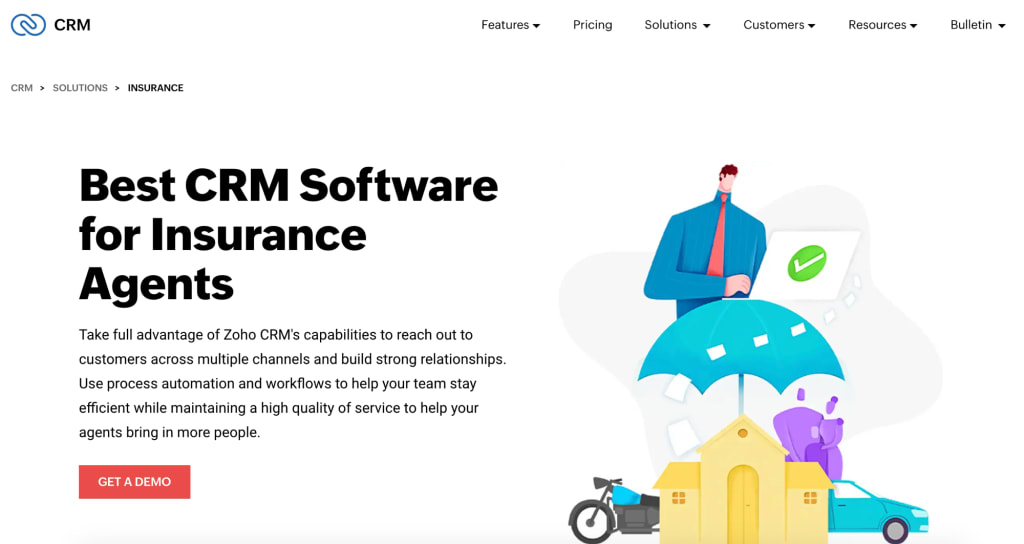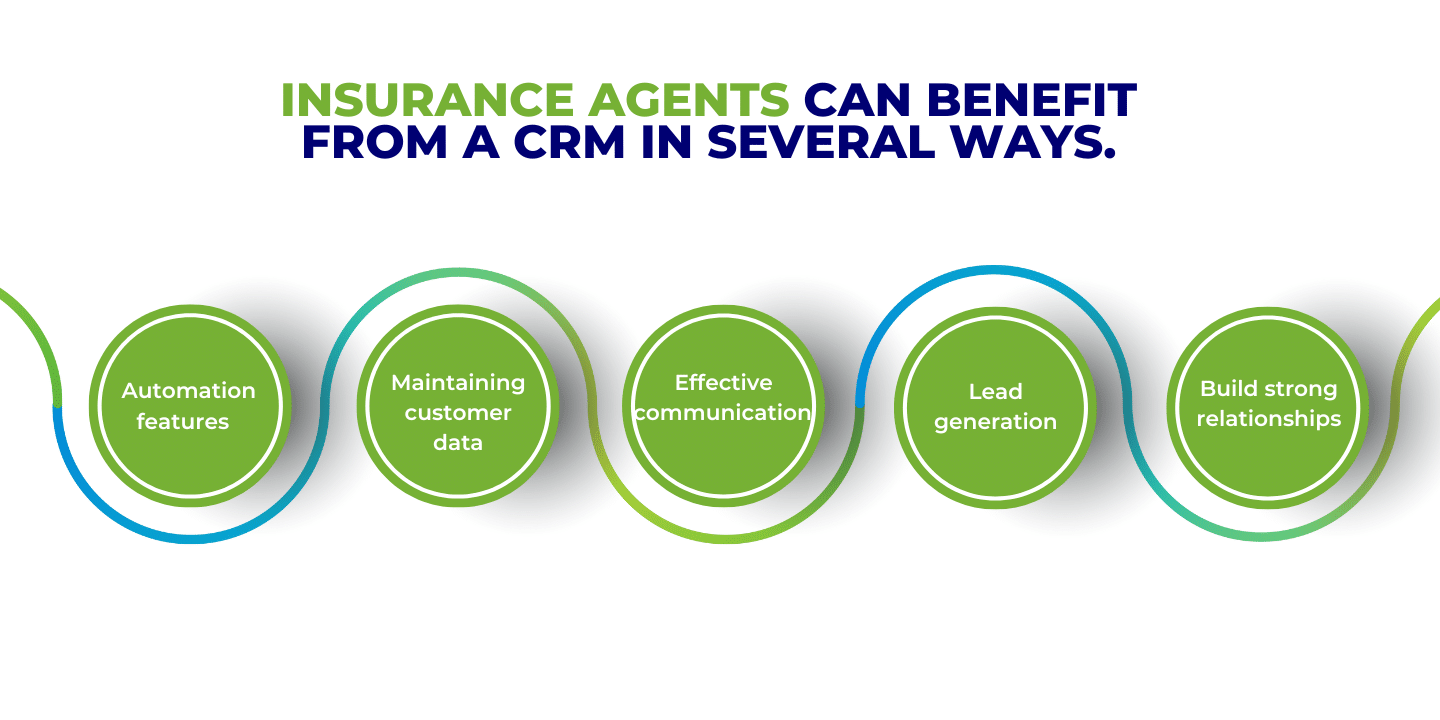Best crm for insurance agency – In the dynamic landscape of insurance, finding the best CRM for insurance agencies is crucial. A robust CRM empowers agencies to streamline operations, enhance client relationships, and drive growth. This guide delves into the essential features, key considerations, and top providers to help agencies make informed decisions and unlock their full potential.
By implementing a tailored CRM solution, insurance agencies can gain a competitive edge, improve productivity, and provide exceptional customer experiences.
CRM Functionality for Insurance Agencies

Customer relationship management (CRM) systems are essential tools for insurance agencies looking to streamline their operations, enhance client relationships, and grow their business. A CRM system tailored specifically for insurance agencies provides a centralized platform to manage all aspects of client interactions, from lead generation and policy management to claims processing and renewals.
One of the core benefits of using a CRM system for insurance agencies is the ability to track and manage client relationships. A CRM system allows agencies to store and organize client data, including contact information, policy details, and communication history.
This information can be used to create personalized marketing campaigns, track client interactions, and identify opportunities for cross-selling and upselling.
Policy Management
Another key functionality of a CRM system for insurance agencies is policy management. A CRM system can be used to track and manage all aspects of the policy lifecycle, from quoting and underwriting to policy issuance and renewals. This information can be used to generate reports, track policy performance, and identify opportunities for growth.
Streamlined Operations
In addition to tracking client relationships and managing policies, a CRM system can also be used to streamline agency operations. A CRM system can be used to automate tasks such as lead generation, appointment scheduling, and claims processing. This can free up agency staff to focus on more strategic tasks, such as building relationships with clients and growing the business.
Key Considerations for Choosing a CRM

Selecting the right CRM for an insurance agency is crucial for streamlining operations, enhancing productivity, and providing exceptional customer service. Several key factors must be considered to ensure the chosen CRM aligns with the agency’s specific needs and objectives.
The size of the agency, its budget, and its unique business requirements should be the primary considerations when evaluating CRM options. It’s essential to assess the CRM’s user-friendliness, scalability, and integration capabilities to ensure a seamless fit with the agency’s existing systems and processes.
Cloud-Based vs. On-Premise CRM Systems
The choice between cloud-based and on-premise CRM systems depends on the agency’s specific preferences and infrastructure. Cloud-based CRMs offer flexibility, accessibility, and lower upfront costs, while on-premise systems provide greater control over data and customization options.
- Cloud-Based CRM Systems:
- Scalable and accessible from anywhere with an internet connection
- Lower upfront costs and ongoing maintenance expenses
- Automatic updates and upgrades
- On-Premise CRM Systems:
- Greater control over data security and customization
- Higher upfront costs and ongoing maintenance requirements
- Manual updates and upgrades
Top CRM Providers for Insurance Agencies
Insurance agencies need a CRM system that can help them manage their relationships with clients, track sales, and automate marketing campaigns. There are many different CRM providers on the market, but not all of them are created equal. Here is a comparison of the leading CRM providers for insurance agencies, including their features, pricing, strengths, weaknesses, and target market.
Key Differentiators
- Features:The features offered by each CRM provider vary depending on the plan you choose. Some of the most common features include contact management, lead tracking, sales automation, marketing automation, and reporting.
- Pricing:The pricing of CRM systems also varies depending on the plan you choose. Some providers offer a free plan, while others charge a monthly or annual fee. The cost of a CRM system can range from a few dollars per month to thousands of dollars per year.
- Strengths:Each CRM provider has its own strengths. Some of the most common strengths include ease of use, customer support, and integrations with other software.
- Weaknesses:Each CRM provider also has its own weaknesses. Some of the most common weaknesses include lack of features, poor customer support, and difficulty of use.
- Target market:Each CRM provider has a target market. Some CRM providers are designed for small businesses, while others are designed for large enterprises. It is important to choose a CRM provider that is a good fit for your agency’s size and needs.
Table of CRM Providers, Best crm for insurance agency
| Provider | Features | Pricing | Strengths | Weaknesses | Target market |
|---|---|---|---|---|---|
| Salesforce | Contact management, lead tracking, sales automation, marketing automation, reporting | $25 per user per month | Ease of use, customer support, integrations with other software | Lack of features, poor customer support, difficulty of use | Small businesses, large enterprises |
| HubSpot | Contact management, lead tracking, sales automation, marketing automation, reporting | $50 per user per month | Ease of use, customer support, integrations with other software | Lack of features, poor customer support, difficulty of use | Small businesses, large enterprises |
| Zoho CRM | Contact management, lead tracking, sales automation, marketing automation, reporting | $12 per user per month | Ease of use, customer support, integrations with other software | Lack of features, poor customer support, difficulty of use | Small businesses, large enterprises |
Best Practices for CRM Implementation
Implementing a CRM system in an insurance agency requires careful planning and execution to ensure successful adoption and utilization. Here are some best practices to follow:
Setting Clear Goals and Objectives
Establishing clear goals and objectives for CRM implementation is crucial. This provides a roadmap for the project and helps measure its success. Define the specific business outcomes you want to achieve, such as improved customer satisfaction, increased sales, or enhanced operational efficiency.
Data Migration
Data migration involves transferring existing customer and policy data from legacy systems or spreadsheets into the CRM. It’s essential to ensure data accuracy and completeness during this process. Use a systematic approach to identify, extract, transform, and load data into the CRM.
User Training
Adequate user training is vital for successful CRM adoption. Train agency staff on the system’s functionality, features, and best practices. Provide hands-on training, documentation, and ongoing support to ensure they understand and utilize the CRM effectively.
Ongoing Maintenance
CRM systems require ongoing maintenance to ensure they remain up-to-date and aligned with changing business needs. Regularly update the system with new features, security patches, and data enhancements. Monitor system performance and user feedback to identify areas for improvement.
Last Recap

Choosing the best CRM for insurance agencies requires careful evaluation and alignment with specific business needs. By considering the factors discussed in this guide, agencies can select a solution that empowers them to thrive in the modern insurance landscape. Embracing a CRM system is not just an investment in technology but a strategic move towards operational excellence and customer satisfaction.
FAQ Section: Best Crm For Insurance Agency
What are the core benefits of using a CRM for insurance agencies?
CRMs enhance client management, streamline operations, track policies, and improve efficiency, leading to increased productivity and growth.
How do I choose the right CRM for my insurance agency?
Consider factors like agency size, budget, user-friendliness, scalability, and integration capabilities to select a CRM that aligns with your specific needs.
What are the advantages of cloud-based CRMs for insurance agencies?
Cloud-based CRMs offer flexibility, accessibility, and cost-effectiveness, allowing agencies to access their data and manage client relationships from anywhere.